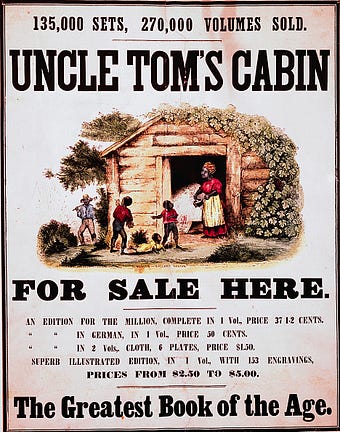|
 |
The Writer's Almanac from Saturday, June 14, 2014
"Genius" by Billy Collins from Aimless Love. © Random House, 2013.
ORIGINAL TEXT AND AUDIO - 2014
Today is Flag Day. It was on June 14, 1777, that the Second Continental Congress approved the Stars and Stripes as the flag of the United States, with a star for each state and 13 red and white stripes to commemorate the original 13 colonies. Of course, in 1777, there were only 13 states, and therefore only 13 stars, and their arrangement wasn't consistent: Sometimes the stars were in a circle, sometimes in rows, and there were a few occasions in the 19th century in which the stars appeared in the shape of a star. Our current incarnation of the flag has been around since 1960, with Hawaii's admission to the Union. In the event that Puerto Rico is officially made a state, there are already some 51-star designs in the works.
Woodrow Wilson formally declared June 14 to be Flag Day in 1916, and Congress established National Flag Day in 1949. It isn't a federal holiday, although Pennsylvania celebrates it as a state holiday and has done so since 1937.
It's the birthday of Harriet Beecher Stowe. Harriet Elizabeth Beecher was born in Litchfield, Connecticut, in 1811. Her father, Lyman Beecher, was a prominent Congregationalist minister, and he was a great proponent of education. The family moved to Cincinnati in 1832, and Harriet married Calvin Ellis Stowe in 1836; he was a clergyman and scholar, and he encouraged her to continue writing, which she had already enjoyed doing for several years.
Although Ohio was a free state, Cincinnati was separated from Kentucky slave-owners only by the Ohio River, and Stowe was very aware of conditions through her encounters with fugitive slaves. She also read a great deal of abolitionist literature, and when her husband took a teaching position in Maine, she began writing a long tale of slavery, Uncle Tom's Cabin; or, Life Among the Lowly (1852), which caused a national sensation. When she later met President Lincoln in 1863, he reportedly remarked, "So this is the little lady who made this great war."
In 1996, novelist Jane Smiley wrote in Harper's: "Ernest Hemingway, thinking of himself, as always, once said that all American literature grew out of Huck Finn. It undoubtedly would have been better for American literature, and American culture, if our literature had grown out of one of the best-selling novels of all time, another American work of the nineteenth century, Uncle Tom's Cabin." Smiley explained that by making the racism and slavery a personal matter between two individuals, rather than a political and institutional evil, Huck Finn fails even where it succeeds, by allowing white people to feel good about getting over their racism without ever actually doing anything about it. Smiley wrote, "Personal relationships do not mitigate the evils of slavery." In Huck Finn, she writes, "All you have to do to be a hero is acknowledge that your poor sidekick is human; you don't actually have to act in the interests of his humanity." She concludes: "I would rather my children read Uncle Tom's Cabin, even though it is far more vivid in its depiction of cruelty than Huck Finn, and this is because Stowe's novel is clearly and unmistakably a tragedy. No whitewash, no secrets, but evil, suffering, imagination, endurance, and redemption — just like life."
It's the birthday of the writer Diablo Cody, born Brook Busey in Lemont, Illinois (1978). She started a popular blog about life as a stripper, and a talent agent came across it and helped her publish her memoir: Candy Girl: A Year in the Life of an Unlikely Stripper (2005). Then he suggested that she write a screenplay, and in just a couple of months sitting with her laptop in the Starbucks section of a Target store in Minneapolis, she wrote the screenplay for Juno (2007), which became a surprise hit. Cody won the Oscar for Best Original Screenplay, and it is the highest-grossing movie in the history of Fox Searchlight Pictures.
It's the birthday of a man whose image has become one of the most popular cultural icons — and counterculture icons — of the past half century: Che Guevara, born Ernesto Guevara de la Serna in Rosario, Argentina (1928), to parents of Irish and Spanish descent. His family was affluent and believed strongly in socialist ideals. He swam competitively, played rugby, and learned to speak French fluently before heading off to medical school. At 23, he took a year off from medical school and set out on a motorcycle ride with a friend of his. For nine months, he traveled around, traversing 8,000 miles by motorcycle, steamship, horseback, hitchhiking, river raft, and cargo plane. The journey became the basis for his New York Times best-selling book The Motorcycle Diaries.
Be well, do good work, and keep in touch.®
The Writer's Almanac Hat
Demonstrate your support with our stylish cap! Support poetry and The Writer's Almanac by wearing this design which features the show's name prominently across the front of this 3 tone hat. Show name and logo are embroidered in white. We're an open book! One size fits most as it's adjustable.
If you are a paid subscriber to The Writer's Almanac with Garrison Keillor, thank you! Your financial support is used to maintain these newsletters, websites, and archive. If you’re not yet a paid subscriber and would like to become one, support can be made through our garrisonkeillor.com store, by check to Prairie Home Productions, P.O. Box 2090, Minneapolis, MN 55402, or by clicking the SUBSCRIBE button. This financial support is not tax deductible.

